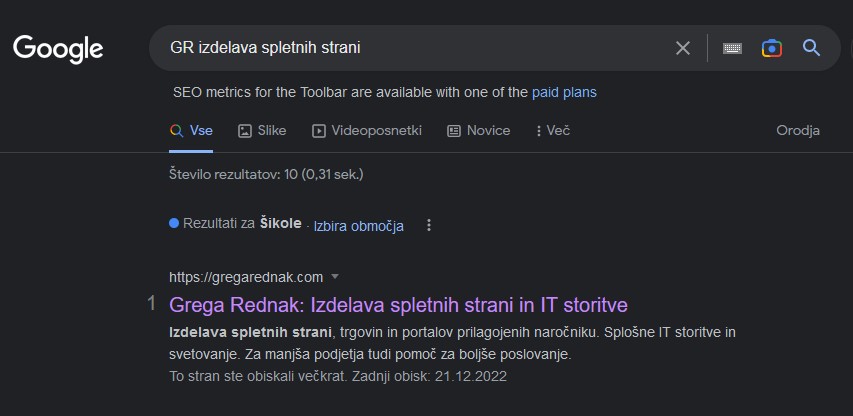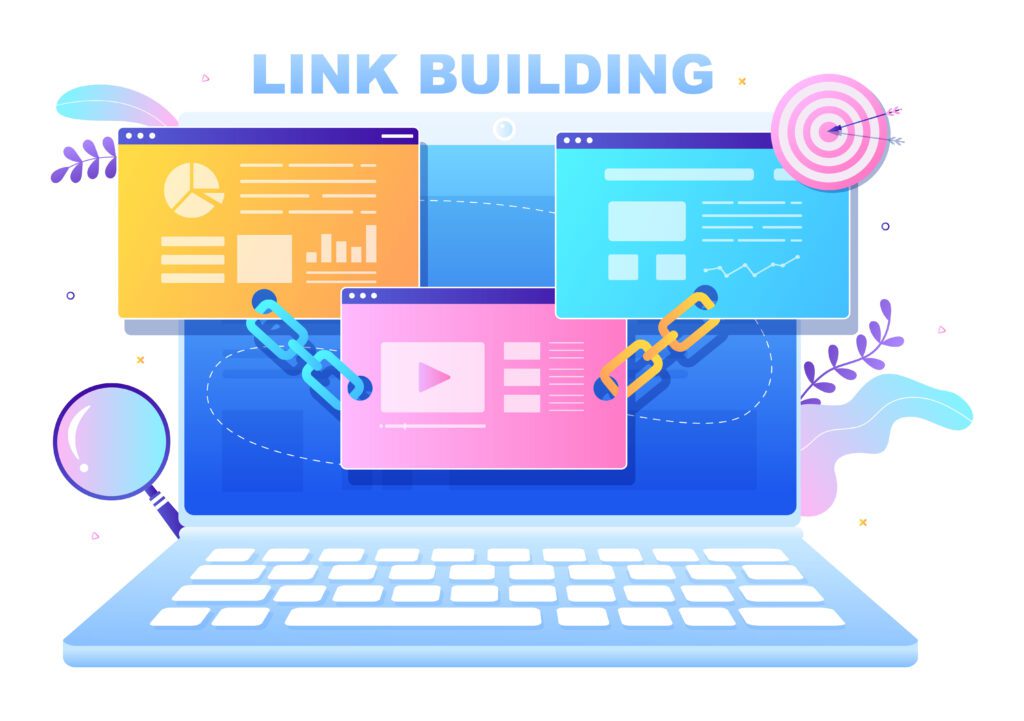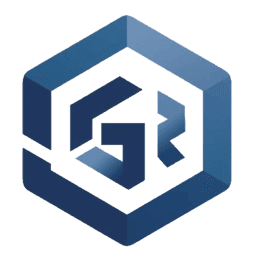SEO optimization withsearch yesngine aboutoptimization) is a long-term process of improving and optimizing websites. The main goal of SEO optimization is increase in website visits, so that only this one is included higher in search engine results.
Online search engines such as Google, use algorithms to determine which websites are most relevant to a given search query keyword or phrase. SEO optimization practices change regularly, as search engine algorithms are updated. These algorithms take into account various factors, such as website content, loading speed websites, mobile friendliness and connections from other websites. Google ensures that priority is quality content websites.
Links from other websites are crucial, but search engines don't just look at the quantity of links, but also the quality, thematic similarity, and diversity of websites that link to ours.
- Google can't see or display the website?
- On-site SEO: Optimizing your website for better visibility
- Off-site SEO: techniques to improve rankings outside of the website
- Local SEO
- Website Indexing: How Does It Work and How Can You Improve Your Ranking?
- What is the difference between SEO optimization and SEM?
- Main SEO optimization factors: What factors affect your website's ranking
- SEO tools
- Summary
Google can't see or display the website?
Many people say that Google “cannot see” their website, but this is usually not true and they simply consider it unimportant. This leads to it being so low in the search results that no one can find it. If you want your website to rank high in search results, you need to make sure that it is optimized for search engines.

Website development should include SEO optimization, which is divided into two parts:
- on-site SEO (on the website) and
- off-site SEO (outside the website).
On-site SEO: Optimizing your website for better visibility
On-site SEO optimization is improving the elements on your website that you can change and control. This includes elements such as addresses, subtitles, meta descriptions, link structure, page content and use keywordsThe goal of on-site SEO is to ensure that the website is structured and organized in a way that search engines can understand quickly and easily.
Technical part of SEO
On-site SEO optimization also includes a technical part, which is important because it can affect the visibility of a website in search engines and the user experience of visitors. Under technical SEO optimization, it is very important website speedFor example, if a website is slow to load, visitors may leave the website and this negatively affects the indexing of the website by search engines. It can also link structure It affects the transparency of the website for search engines, as well as for users, and contributes to better indexing of the website.
For successful SEO optimization of the technical part, it is important to consider elements such as link structure, website loading speed, URL link structure, website indexing by search engines, and mobile device support. By properly optimizing these elements, a website can achieve a higher position in search results.

Off-site SEO: techniques to improve rankings outside of the website
Off-site SEO optimization is anything that is not directly on a website but can still affect its visibility in search engines. Off-site SEO optimization is performed outside of the same website to improve search engine visibility. This includes obtaining links from other websites, promoting the website on social media and other marketing tools, and building the reputation and authority of the website. The goal of off-site SEO optimization is to increase the credibility and authority of a website by obtaining high-quality links from other websites.
It is an important part of the overall SEO optimization process as it can help increase your website’s visibility and credibility in search engines. However, it is important to follow best practices and avoid pitfalls and unethical tactics as they can negatively impact your website’s reputation and search engine rankings.
In general, off-page SEO is a way to improve the visibility and credibility of a website in search engines by building its reputation and gaining high-quality links from other websites. It is an important part of the overall SEO optimization process and can help your website rank higher in search results and attract more visitors.

Local SEO
The goal of local SEO optimization is to attract customers from the local area to physical business or local service areaLocal SEO optimization is especially important for smaller businesses that rely on customers. from a specific geographical area, so it is an important part of any online marketing strategy for this type of business.
By optimizing your website for local search terms and by providing information about their location and services offered, businesses can attract more local customers and also increase their online visibility.
There are several factors that can be used in local SEO optimization, including the use of keywords specific to the business's location, including contact information on the website, and the presence of online reviews and ratings. By optimizing these factors, a business can improve its local SEO optimization and attract more customers from the local area.

Website Indexing: How Does It Work and How Can You Improve Your Ranking?
Search is the foundation of the web, and indexing is the process by which search engines like Google crawl and index web pages. When a user types a query into a search engine, the search engine scans its index and returns results that best match the query.
Website indexing works by having search engines use “robots” to crawl a website and index the content. When the search engine scans the website, also scans all the links on the website and indexes them. The search engine then uses the indexed content and links to rank a website in search results.
For a website to be indexed well, it is important that the website contains quality content, is structured and organized in a way that search engines can easily understand, and has good links from websitesBy properly optimizing these elements, a website can achieve higher position in search results and attracts more visitors.
What is the difference between SEO optimization and SEM?
SEM (search engine marketing) is a broader term that includes not only SEO optimization, but also paid ads in search engines such as Google Ads. SEM also aims to improve a website's visibility in search engines, but it achieves this by paying for ads that appear in search results.
In general, it is SEO optimization the process of improving a website for improvement hers visibility in search results to gain more "organic" traffic. SEM is a broader concept, which includes both SEO optimization and paid search engine advertising. Both are important for a successful online presence and can help gain more visitors to the website.

Main SEO optimization factors: What factors affect your website's ranking
The main SEO optimization factors are elements that affect a website's visibility in search engines and its ranking in search results. These factors include:
- Content quality: Search engines want to offer their users quality and relevant content.
- Website structure and organization: Search engines prefer to index web pages that are structured and organized and easy to understand using titles, subheadings, and other elements that help search engines understand the content of the web page.
- Using keywords: Search engines use keywords to understand the content of a web page and rank it in search results.
- Links from websites: Search engines also consider the number and quality of links from other websites that point to a website. Links from other websites can help increase the credibility and authority of a website, thus improving its ranking in search results.
- Mobile-friendly: More and more people are using mobile devices to browse the web, so it is important that a website is mobile-friendly and displays well on different mobile devices.
Taking these factors into account and optimizing them can help improve a website's visibility in search engines and increase the number of visitors to the website.
SEO tools
SEO tools like Ahrefs, SEMrush, and Google Search Console play a crucial role in optimizing your website for search engines. These tools give you insight into key statistics and data that will help you better understand how your website is performing and how you can improve it.
Ahrefs is a powerful link and keyword analysis tool. With its competitive research, content analysis, and keyword position tracking features, Ahrefs lets you discover what's working in your industry and how you can beat the competition.
SEMrush is another popular tool that offers keyword analysis, position monitoring, domain comparison, and much more. With SEMrush, you can research keywords that drive traffic to your competitors and see how your site compares to others.
Google Search Console is a free tool provided by Google that is indispensable for every webmaster. It allows you to monitor Google's indexing of your website, alerts you to potential problems and errors, and gives you insight into the keywords for which your website appears in search results.
By using these tools, you can better understand how your website is performing in search engines and what you can do to improve it. By analyzing your competition, monitoring your keywords, and identifying potential problems, you can more successfully approach optimizing your website and achieve better search engine results.
Summary
The main goal of SEO optimization is increase in website visits, so that only this one is included higher in search engine resultsWe distinguish between on-site and off-site optimization.
Main factors to increase website traffic, the quality of the content, keywords e.g. "website creation", links from websites, website structure and organization, and mobile friendliness.
By optimizing your website for local search terms and providing information about your location and services offered, a business can improve its online visibility and attracts more customers from the local area.

